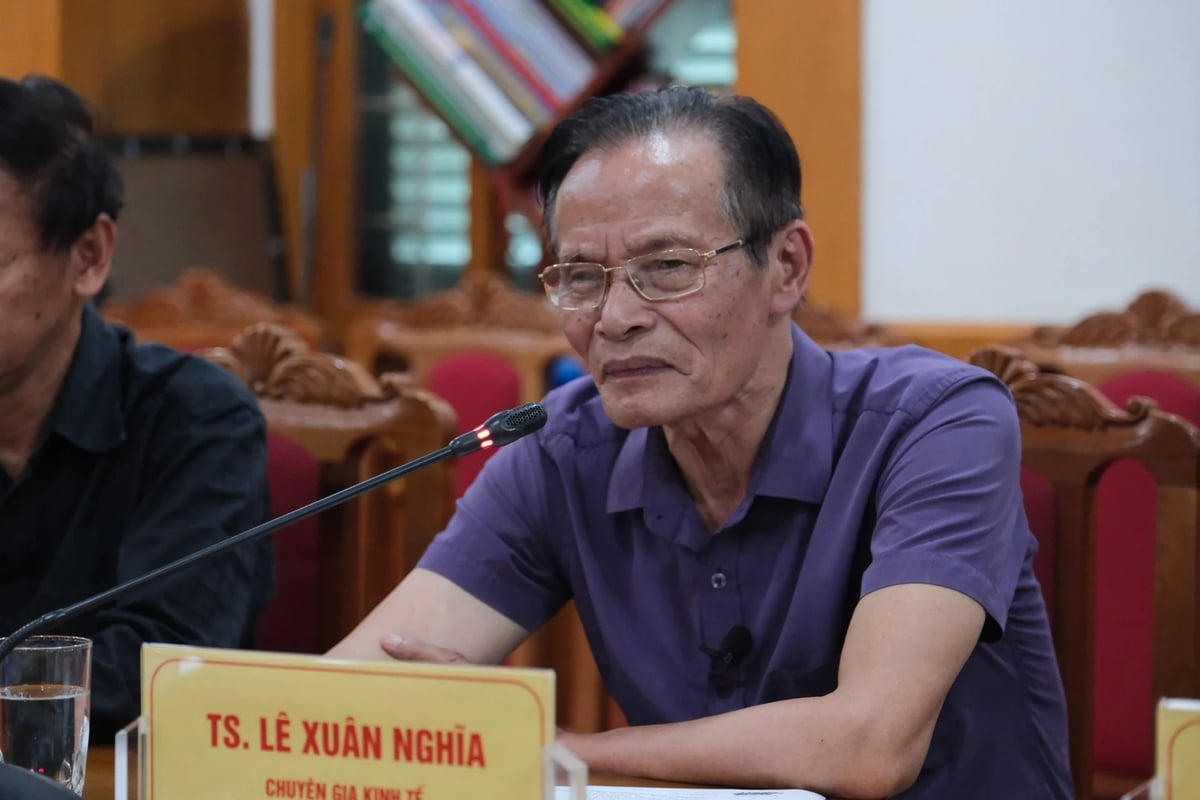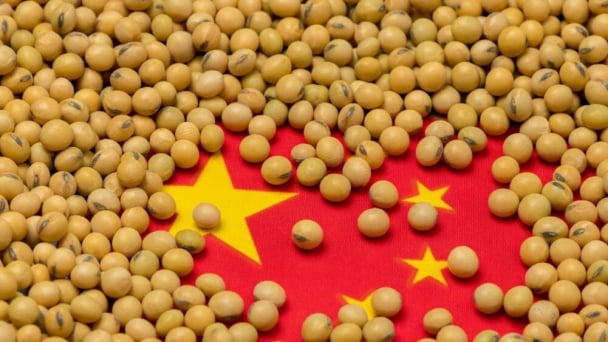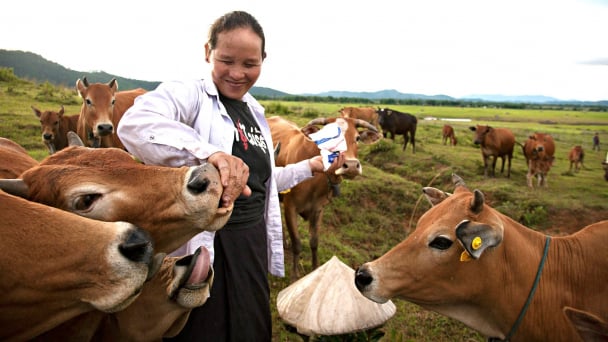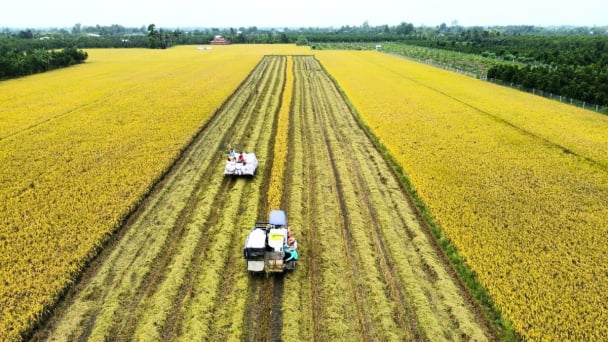April 14, 2025 | 09:13 GMT +7
April 14, 2025 | 09:13 GMT +7
Hotline: 0913.378.918
April 14, 2025 | 09:13 GMT +7
Hotline: 0913.378.918

Dr. Le Xuan Nghia. Photo: Tung Dinh.
First of all, regarding reciprocal tariffs, the latest tax policy of US President Donald Trump is understood to be that the US will tax the goods of other countries in the same way as other countries tax American goods according to the principle of fair trade.
However, this is only initial information, everything is waiting for the negotiation process, there may be appropriate adjustments according to the partnership between countries.
In the short term, several international agencies have forecast that global GDP could decrease by approximately 0.3%, while inflation may rise by 0.5% compared to previous scenarios. The main reason stems from President Donald Trump's policy of imposing high tariffs on goods from other countries. Such a move will almost certainly provoke retaliatory actions from many nations. At that point, the US's economy itself will also be significantly affected. According to projections, the US's GDP could shrink by 0.5%, and inflation may increase by 1% as a direct consequence of President Trump's trade policy.
As for Vietnam, it is certain that if the proposed retaliatory tariff rate of 46% is implemented, it will have a substantial impact on the economy. This is especially critical given the high degree of openness in Vietnam’s economy - its total import - export turnover is nearly double the GDP. Meanwhile, the United States has been one of Vietnam’s largest export markets for many years. I believe that President Trump’s tax policy will place considerable pressure on Vietnam’s goal of achieving 8% economic growth in 2025.
Nonetheless, from my personal perspective, in the long run, not only Vietnam but all countries must accept the principles and rules of fair trade. We must be proactive, ready, and flexible in adapting to reciprocal tariff issues, which is an inevitable global trend. In other words, if we impose tariffs on their goods, they will do the same to ours.
Only in this way can the implementation of international fair trade policies truly be fair. There should no longer be situations where European goods entering the US are taxed at only 2%, while US goods entering Europe are subject to a 10% tax.

Dr. Le Dang Doanh. Photo: Nguyen Thuy.
First and foremost, the United States has been Vietnam’s largest export market for many years. If a reciprocal tariffs rate of 46% is imposed, it is certain that our goods will no longer be able to compete in this market. Such an excessively high tariff rate would make it impossible for Vietnamese products to compete with those from countries that are only subject to tariffs of around 10%. This would severely impact our production and export activities and, in turn, negatively affect Vietnam’s GDP.
Therefore, I believe there are two urgent and critical tasks that must be undertaken immediately in response. The first is to enter negotiations with the United States in order to seek a reduction in tariffs on Vietnamese goods, ideally bringing them in line with those applied to other countries in the region such as Thailand and Malaysia. The second is to immediately develop a strategy to concentrate efforts on diversifying both export markets and product lines. This should be done in parallel with identifying and penetrating new markets in regions such as the Middle East, Africa, and South America.
It can be said that President Donald Trump’s trade policy poses a significant challenge. I hope that the entire political system will join forces to support the business community in overcoming this difficult period.
Translated by Kieu Chi

(VAN) According to Deputy Prime Minister Bui Thanh Son, through this P4G Summit, Vietnam aims to convey the message of transforming its growth model towards rapid and sustainable development.

(VAN) Soybean production has been a priority for China to ensure food security, with increased soybean cultivation and yields highlighted in the annual No. 1 Central document.

(VAN) Vietnam Sea and Islands Week 2025 is expected to take place in Quang Binh, featuring a series of meaningful activities aimed at protecting the ocean through green technology solutions.

(VAN) The One Health approach is no longer merely an option, as increasingly complex challenges confront health and food systems.

(VAN) The project promoting sustainable coffee production, with a focus on waste management and raising farmers’ awareness, has achieved many positive results after nearly two years of implementation.

(VAN) Transferring and receiving 6 individuals of the red-crowned crane from Thailand to Vietnam marks a significant milestone in the conservation efforts for this species.

(VAN) After more than a year of implementation, the One Million Hectares of High-Quality, Low-Emission Rice project has completed the first steps, but it needs breakthrough solutions to deepen impacts in the upcoming phase.